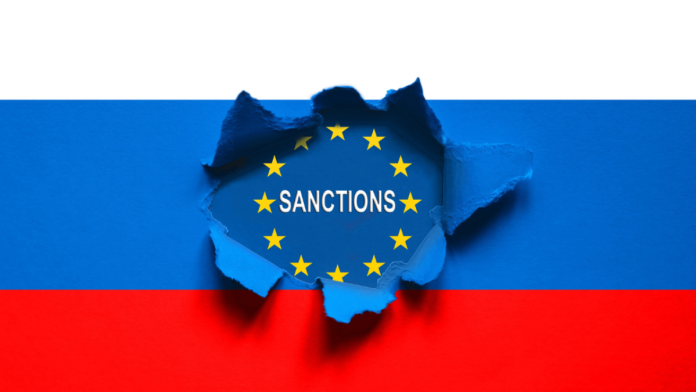The European Union has unveiled a powerful new package of sanctions targeting Russia. This comes after weeks of coordination with the United States, which pushed for stricter measures to put economic pressure on Moscow. The move marks the 19th sanctions package imposed by the EU since the start of the Russia-Ukraine conflict in 2022.
The European Commission, led by President Ursula von der Leyen, officially adopted the sanctions, which are now awaiting approval from all EU member states. Chief Spokesperson Paula Pinho confirmed that the package targets Russian banks, cryptocurrency assets, and energy imports. The sanctions are designed to limit Russia’s access to money, resources, and international markets, intensifying pressure on the Russian economy.
Tough Measures on Energy and Finance
A central part of the sanctions is aimed at reducing Europe’s reliance on Russian energy. Currently, about 19 percent of Europe’s gas comes from Russia, mainly through pipelines like the TurkStream Pipeline, which carries gas from Russia to Europe through Turkey, and liquefied natural gas (LNG) shipments. The EU is now considering speeding up a ban on Russian LNG, which would reduce Moscow’s energy profits and limit its ability to finance military operations.
Sanctions plan against Israel sparks division inside European Union
The sanctions also target financial institutions and digital currencies connected to Russia. By restricting access to banks and crypto markets, the EU hopes to make it more difficult for Russia to move money or fund its activities. These steps follow calls from international partners, including US President Donald Trump, for coordinated actions to further weaken Russia’s economic power.
The sanctions package was delayed by one week due to discussions and coordination with the United States. EU officials emphasized that the measures would be implemented carefully to prevent sudden increases in energy prices or disruptions in supply within Europe.
Trump links new tariffs on India and China to joint EU action against Russia
Reactions and Challenges
The move has received strong support from countries seeking to pressure Russia economically. Many allies, including Ukraine, have urged the EU to act quickly. Ukrainian officials highlighted the importance of coordinated steps across the Atlantic to reduce Russia’s resources for the ongoing conflict.
However, some countries in Europe still rely heavily on Russian energy. For example, Hungary imports about 60 percent of its oil from Russia, and Slovakia depends on Russian energy for roughly 75 percent of its needs. Analysts have urged the EU to increase pressure on these nations to reduce dependence while implementing sanctions.
Russia has downplayed the expected impact of the sanctions. Foreign Ministry spokesperson Maria Zakharova described the measures as unlikely to change the situation and criticized the EU’s push to abandon Russian energy, calling it harmful to Europe as well.
EU and India explore trade and security pact under shadow of Russia sanctions
A Record of Sanctions
The European Union has now adopted 18 sanctions packages against Russia since the conflict began. Each package has targeted different sectors, including finance, technology, and energy. The 19th package, led by the European Commission under Ursula von der Leyen, is the toughest yet, combining pressure on banks, cryptocurrencies, and fossil fuel imports.
This sanctions effort reflects the EU’s strategy to act together while maintaining stability within its own countries. It also shows the influence of international partners, including the United States, in shaping stronger economic responses.
The 19th sanctions package will now go through the formal approval process by all EU member states before taking effect. Once adopted, it will represent the most comprehensive attempt yet by Europe to limit Russia’s financial and energy resources in response to the ongoing conflict.
